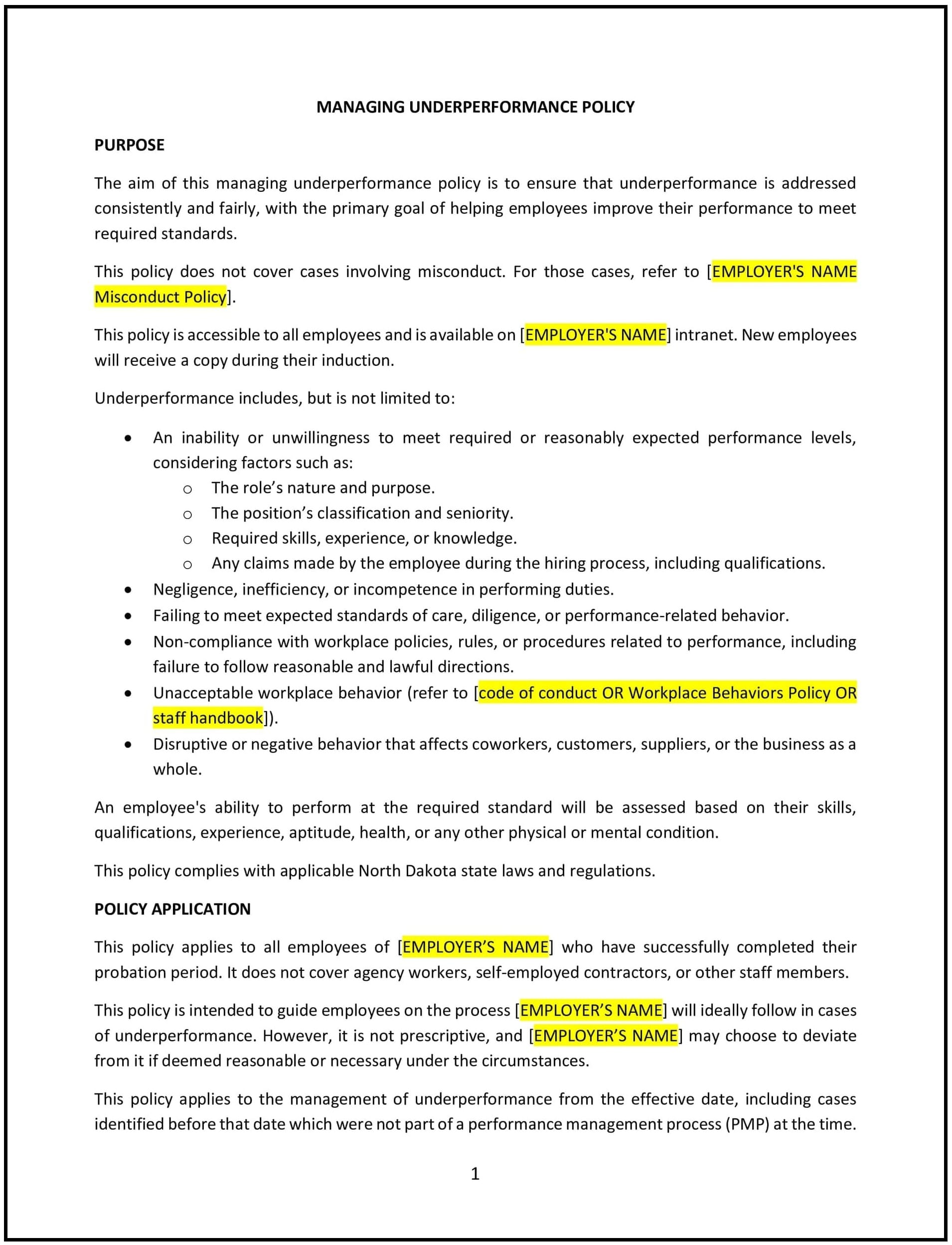Managing underperformance policy (North Dakota): Free template
Got contracts to review? While you're here for policies, let Cobrief make contract review effortless—start your free review now.

Customize this template for free
Managing underperformance policy (North Dakota)
This managing underperformance policy is designed to help North Dakota businesses establish fair and effective processes for addressing employee performance issues. The policy outlines performance expectations, corrective measures, and potential disciplinary actions.
By implementing this policy, businesses can support employee improvement, maintain productivity, and reduce legal risks.
How to use this managing underperformance policy (North Dakota)
- Define performance expectations: Establish clear job performance standards.
- Identify early signs of underperformance: Monitor productivity and work quality.
- Implement performance improvement plans (PIPs): Provide structured plans for employee development.
- Offer coaching and feedback: Conduct regular reviews and offer constructive feedback.
- Establish disciplinary steps: Define progressive disciplinary actions for ongoing issues.
- Document performance concerns: Maintain records of underperformance and corrective actions.
- Review regularly: Update the policy based on workplace needs and best practices.
Benefits of using this managing underperformance policy (North Dakota)
Implementing this policy provides several advantages for North Dakota businesses:
- Improves workforce productivity: Helps employees meet job performance expectations.
- Supports fair treatment: Ensures all employees are given opportunities to improve.
- Reduces legal risks: Provides a structured process for handling performance-related terminations.
- Enhances workplace morale: Creates a transparent and constructive approach to performance management.
- Reflects North Dakota-specific considerations: Aligns with employment laws and industry standards.
Tips for using this managing underperformance policy (North Dakota)
- Address issues early: Provide feedback before problems escalate.
- Use structured improvement plans: Set clear goals and deadlines for employee progress.
- Offer support and resources: Provide additional training if needed.
- Follow progressive discipline: Ensure fair treatment through a step-by-step correction process.
- Adjust as needed: Update policies based on performance trends and business needs.